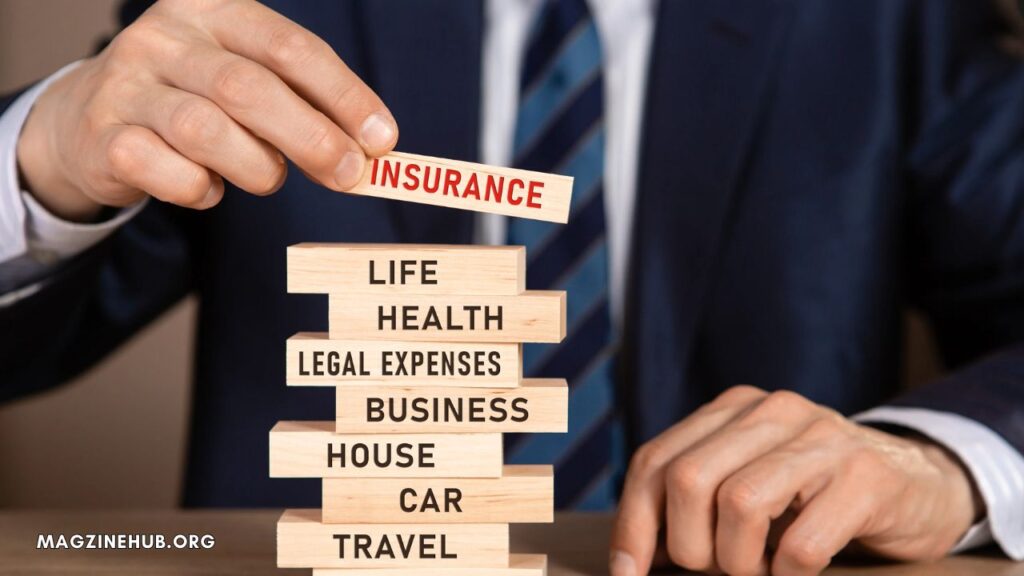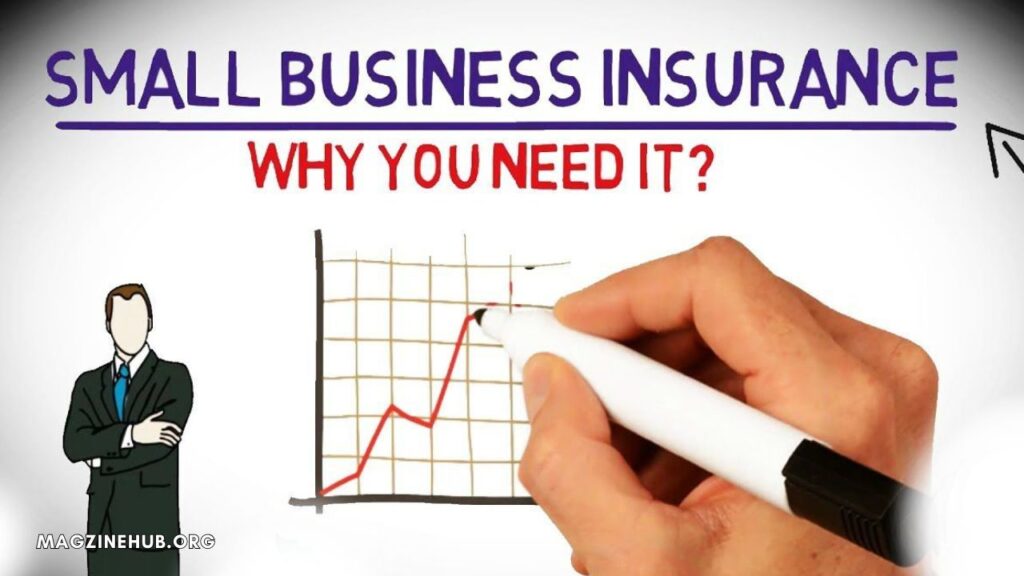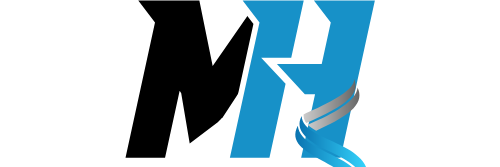5 Essential Reasons Why Your Business Needs Insurance
Discover why business insurance is essential for protection and peace of mind. Learn about the key benefits and types of insurance you need.
5 Essential Reasons Why Your Business Needs Insurace
Introduction
Business insurance is crucial for safeguarding your business against unexpected lawsuits, financial liabilities, and unforeseen events. Imagine the impact on companies that used asbestos before its dangers were known. Without proper insurance, they would struggle to handle the financial fallout from class-action lawsuits. Insurance provides peace of mind, ensuring your business is protected no matter what the future holds.
In this comprehensive guide, we’ll delve into the essential reasons why your business needs insurance, the types of insurance available, legal requirements, and the profound benefits that insurance provides. We’ll also explore how to choose the right insurance for your business and the steps to take to ensure you’re fully covered.
Table of Contents
What Insurance Do You Need for a Business?

Types of Business Insurance
When it comes to insuring your business, there are several types of policies you can consider. Each type addresses specific risks and needs, so it’s important to understand what each one covers to determine what’s best for your business.
Business Owner’s Policy (BOP)
A Business Owner’s Policy (BOP) is a comprehensive policy that combines various types of coverage into one package. It typically includes general liability insurance, property insurance, and business interruption insurance. This makes it an ideal choice for small to medium-sized businesses with physical locations.
General Liability Insurance: This protects your business from claims of bodily injury, property damage, and personal injury (such as libel or slander). For example, if a customer slips and falls at your business, general liability insurance can cover medical expenses and legal fees.
Property Insurance: This covers damage to your business property, including buildings, equipment, and inventory. It protects against risks such as fire, theft, and vandalism. For instance, if a fire damages your office, property insurance can help cover the cost of repairs or replacement.
Business Interruption Insurance: This helps cover lost income and operating expenses if your business is forced to shut down temporarily due to a covered event, such as a natural disaster. If a hurricane damages your store, business interruption insurance can help pay for lost income while you make repairs.
Employer Liability Insurance
Employer liability insurance is crucial if you have employees. It covers claims made by employees who are injured or become ill due to their work. This type of insurance can cover medical costs, legal fees, and compensation payments.
Workers’ Compensation Insurance: This is a type of employer liability insurance that is mandatory in most states. It covers medical expenses and lost wages for employees who are injured on the job. For example, if an employee injures their back while lifting heavy boxes, workers’ compensation can cover their medical bills and a portion of their lost wages.
Employment Practices Liability Insurance (EPLI): This covers claims related to employment practices, such as wrongful termination, discrimination, and sexual harassment. If an employee sues your business for discrimination, EPLI can help cover legal fees and settlements.
Product Liability Insurance
If your business manufactures or sells products, product liability insurance is essential. It covers claims related to injuries or damages caused by your products. For example, if a customer is injured by a defective product, this insurance can cover medical expenses and legal fees.
Professional Liability Insurance
Also known as errors and omissions (E&O) insurance, professional liability insurance covers claims related to professional mistakes or negligence. It is particularly important for service-based businesses, such as consultants, accountants, and lawyers. If a client sues your business for a mistake that caused them financial loss, professional liability insurance can help cover legal fees and settlements.
Legal Requirements
The legal requirement for business insurance varies by state and the nature of the business. For example, companies with a certain number of employees are often required to have employer liability insurance to cover expenses in case of employee lawsuits. It’s essential to check your state’s regulations to ensure compliance. Even if not legally required, having insurance is a wise decision to protect your business.
State Regulations
Each state has different regulations regarding business insurance. Some states require specific types of insurance, while others have more lenient requirements. For example:
- Workers’ Compensation: Most states require businesses with employees to carry workers’ compensation insurance. However, the requirements vary by state, with some states requiring coverage for even one employee and others having different thresholds.
- Commercial Auto Insurance: If your business owns vehicles, most states require commercial auto insurance to cover liability and physical damage.
- Professional Liability Insurance: Certain professions, such as doctors and lawyers, may be required to carry professional liability insurance.
Federal Regulations
In addition to state regulations, there are federal regulations that may require specific types of insurance. For example:
- The Affordable Care Act (ACA): Employers with 50 or more full-time employees are required to provide health insurance to their employees.
- Federal Motor Carrier Safety Administration (FMCSA): Businesses involved in interstate commerce may be required to carry specific types of insurance, such as liability insurance for commercial vehicles.
Why Business Insurance is Important

Peace of Mind
Legal Defense Costs
Legal defense can be extremely expensive. Even if you are not at fault, a lawsuit can cause significant financial strain without insurance coverage. For example, a lawsuit can easily cost tens of thousands of dollars in legal fees, even if you win the case. Insurance can help cover these costs, allowing you to focus on running your business.
Case Study: A small business was sued by a customer who claimed to have been injured by a product they sold. The legal fees and potential settlement costs were overwhelming for the business owner. Fortunately, their liability insurance covered the legal defense costs, allowing them to continue operating without financial ruin.
Acts of God
Insurance covers unforeseen events such as accidents and severe weather conditions, protecting your business from huge expenses due to acts of god. Natural disasters, fires, and other catastrophic events can cause significant damage to your business. Insurance can help cover the cost of repairs and lost income during the recovery period.
Example: A hurricane caused significant damage to a retail store, forcing it to close for several months. Business interruption insurance covered the lost income, while property insurance paid for the repairs. Without insurance, the business would have faced financial ruin.
Property Damage
Protecting Physical Assets
Insurance is essential for protecting your business’s physical assets, such as buildings, equipment, and inventory. Property insurance covers damage from events like fire, theft, and vandalism, ensuring that you can quickly recover and resume operations.
Example: A fire broke out in a restaurant, causing extensive damage to the kitchen and dining area. Property insurance covered the cost of repairs and replacement of damaged equipment, allowing the restaurant to reopen within a few weeks.
Theft and Vandalism
Theft and vandalism can cause significant financial losses for businesses. Insurance can help cover the cost of stolen or damaged property, reducing the financial impact on your business.
Case Study: A small retail store experienced a break-in, resulting in stolen merchandise and damage to the store’s interior. Property insurance covered the cost of replacing the stolen items and repairing the damage, allowing the store to quickly recover and continue operations.
Business Interruption
Loss of Income
Some policies cover not only liabilities but also loss of income due to unforeseen circumstances, such as natural disasters that halt business operations. Business interruption insurance can help cover ongoing expenses, such as rent and salaries, during the recovery period.
Example: A flood forced a manufacturing plant to close for several months. Business interruption insurance covered the lost income and helped the business pay its bills during the shutdown. Without this coverage, the business might have been forced to close permanently.
Maintaining Cash Flow
Insurance can help maintain cash flow during unexpected disruptions, ensuring that your business can continue to meet its financial obligations. This is especially important for small businesses with limited financial reserves.
Case Study: A small law firm experienced a significant data breach, forcing it to shut down temporarily to address the issue. Business interruption insurance helped cover the lost income and ongoing expenses, allowing the firm to continue operating and serving its clients once the breach was resolved.
Employee Protection
Attracting and Retaining Employees
Offering insurance can attract skilled employees in a competitive job market. Additional perks like disability insurance make your business even more appealing to potential employees. Insurance benefits can help you attract and retain top talent, giving your business a competitive edge.
Example: A tech startup offered health insurance and disability coverage to its employees, helping it attract experienced developers who might have otherwise chosen larger companies. These benefits also contributed to high employee satisfaction and retention rates.
Worker Safety and Well-being
Insurance plays a crucial role in protecting the safety and well-being of your employees. Workers’ compensation insurance covers medical expenses and lost wages for employees who are injured on the job, ensuring they receive the care they need.
Case Study: An employee at a construction company was injured while operating heavy machinery. Workers’ compensation insurance covered the employee’s medical expenses and provided income during their recovery period. This not only helped the employee but also protected the company from potential legal action.
Protects Your Business
Compliance
For businesses legally required to have insurance, it ensures compliance with the law and avoids potential legal trouble. Failure to carry the necessary insurance can result in fines, legal penalties, and even the suspension of your business operations.
Example: A restaurant owner failed to carry workers’ compensation insurance, resulting in a significant fine and the temporary closure of the business. The owner quickly obtained the required insurance to ensure compliance and avoid further penalties.
Financial Stability
Insurance provides financial stability by protecting your business from significant financial losses. This allows you to plan for the future and invest in growth opportunities without the constant fear of unexpected expenses.
Case Study: A small manufacturing company faced a product liability lawsuit that could have bankrupted the business. Product liability insurance covered the legal costs and settlement, allowing the company to continue operating and growing.
How to Choose the Right Business Insurance

Assess Your Risks
The first step in choosing the right business insurance is to assess the risks your business faces. Consider the nature of your business, the industry you operate in, and the potential hazards associated with your operations.
Industry-Specific Risks
Different industries have unique risks that require specific types of insurance. For example:
- Construction: Construction companies face risks related to workplace injuries, equipment damage, and property damage. General liability, workers’ compensation, and equipment insurance are essential.
- Healthcare: Healthcare providers face risks related to malpractice claims, patient injuries, and data breaches. Professional liability (malpractice) insurance and cyber liability insurance are crucial.
- Retail: Retail businesses face risks related to theft, property damage, and customer injuries. General liability, property insurance, and business interruption insurance are important.
Evaluate Your Coverage Needs
Once you’ve assessed your risks, evaluate your coverage needs based on the size and scope of your business. Consider the following factors:
- Number of Employees: The number of employees you have will impact your need for employer liability and workers’ compensation insurance.
- Business Location: The location of your business can affect the types of coverage you need. For example, businesses in areas prone to natural disasters may need additional coverage for events like floods or earthquakes.
- Assets and Inventory: The value of your business’s assets and inventory will determine the amount of property insurance you need.
Shop Around for Quotes
It’s important to shop around and compare quotes from different insurance providers. This will help you find the best coverage at the most affordable price. Consider working with an insurance broker who can help you navigate the various options and find the right policies for your business.
Factors to Consider When Comparing Quotes
- Coverage Limits: Ensure the policy provides adequate coverage for your business’s needs. This includes the maximum amount the insurer will pay for a covered claim.
- Deductibles: Consider the deductible, or the amount you’ll need to pay out of pocket before the insurance coverage kicks in. Higher deductibles can lower your premium but may result in higher out-of-pocket costs in the event of a claim.
- Premiums: Compare the cost of premiums across different providers. While it’s important to find affordable coverage, don’t sacrifice quality or necessary coverage to save money.
- Policy Exclusions: Review the policy exclusions to understand what is not covered. Make sure you’re aware of any gaps in coverage and consider additional policies if necessary.
Review Your Policies Regularly
Your business’s insurance needs may change over time, so it’s important to review your policies regularly. Update your coverage as needed to ensure you’re adequately protected. This is especially important if you expand your business, hire more employees, or acquire new assets.
Life Events That May Require Policy Updates
- Business Expansion: If you open new locations, add new products or services, or significantly increase your revenue, you may need to update your insurance coverage.
- Employee Changes: If you hire additional employees or change your workforce structure, review your employer liability and workers’ compensation coverage.
- Asset Acquisition: If you purchase new equipment, vehicles, or property, update your property insurance to ensure these assets are covered.
Conclusion
Many businesses delay getting insurance, assuming it is unaffordable or unnecessary. However, once you are liable for employees and other responsibilities, insurance becomes crucial. It protects your business and employees, ensuring continuity and compliance, even if the initial cost seems high.
Call to Action
Ensure your business is protected. Contact an insurance provider today to discuss the best insurance options for your business needs.
industry Trends: Keep updated with the latest industry trends and adjust your insurance policies accordingly.
Following these guidelines will help ensure your content is optimized for search engines, engaging, and informative. Remember, using clear and simple language helps readability, making your content accessible to a broader audience.
Additional Resources
- Small Business Administration (SBA): Provides resources and information on business insurance requirements and options.
- Insurance Information Institute (III): Offers insights and data on various types of business insurance.
- National Association of Insurance Commissioners (NAIC): Provides regulatory information and resources for insurance consumers.
Frequently Asked Questions
Q: What is the most important type of insurance for a small business?
A: The most important type of insurance for a small business depends on the nature of the business, but a Business Owner’s Policy (BOP) is often a good starting point. It combines general liability, property insurance, and business interruption insurance.
Q: How much does business insurance typically cost?
A: The cost of business insurance varies widely based on factors such as the type of business, location, number of employees, and coverage limits. It’s best to get quotes from multiple providers to find the best rate.
Q: Can I bundle different types of insurance policies?
A: Yes, many insurers offer bundled policies that combine multiple types of coverage, such as a BOP. Bundling can often result in cost savings and simplified management of your insurance policies.
Q: How do I file a claim if something happens?
A: Contact your insurance provider as soon as possible to report the incident and start the claims process. Provide all necessary documentation and follow your insurer’s instructions to ensure a smooth and efficient claims process.
Remember: Protecting your business with the right insurance coverage is essential for long-term success. Take the time to assess your risks, evaluate your coverage needs, and choose the best policies to safeguard your business.

